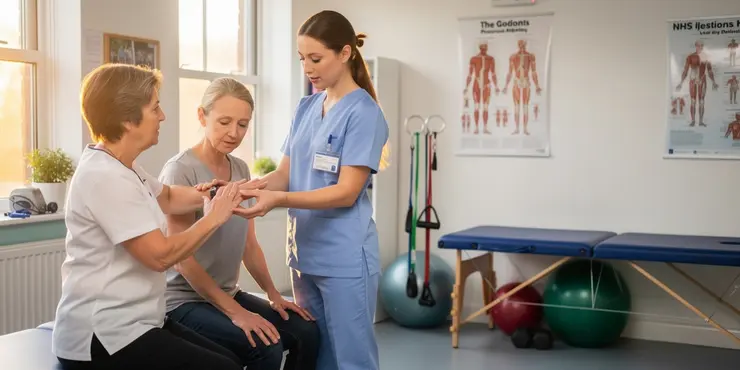
Find Help
More Items From Ergsy search
-

What is the recovery time for a hip replacement?
Relevance: 100%
-
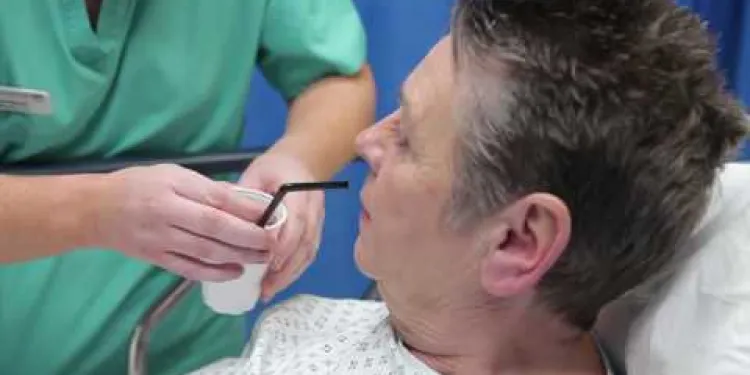
Hip replacement
Relevance: 95%
-
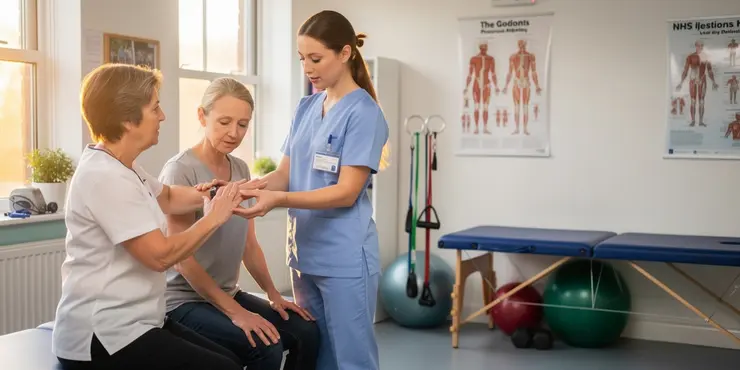
What can I expect during the first few weeks after hip replacement surgery?
Relevance: 93%
-
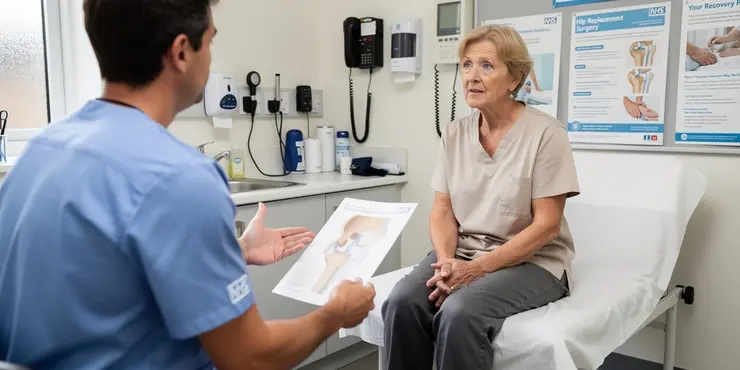
What is minimally invasive hip replacement surgery?
Relevance: 85%
-
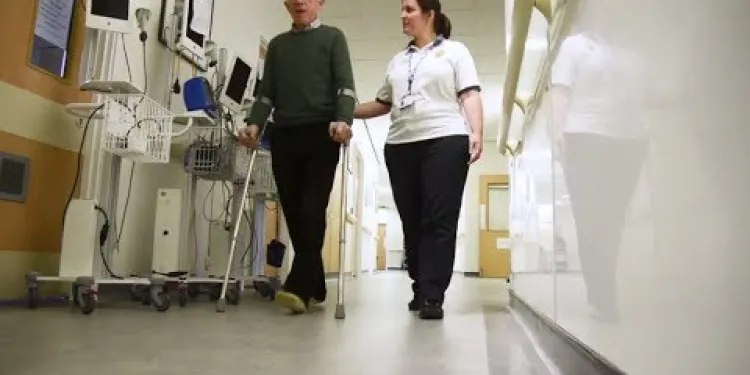
Having a hip replacement - Part Two: Recovery
Relevance: 84%
-
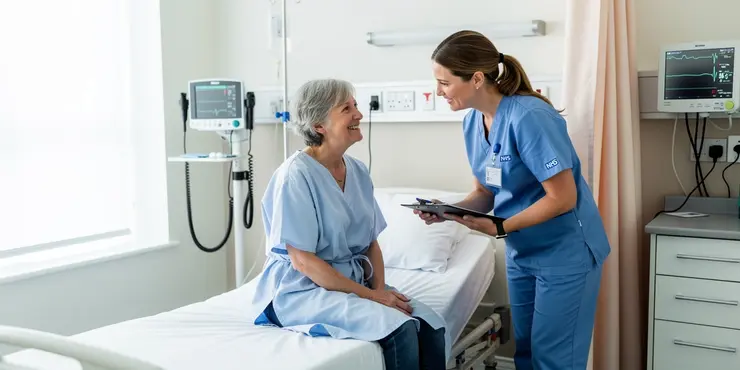
What is a hip replacement?
Relevance: 83%
-
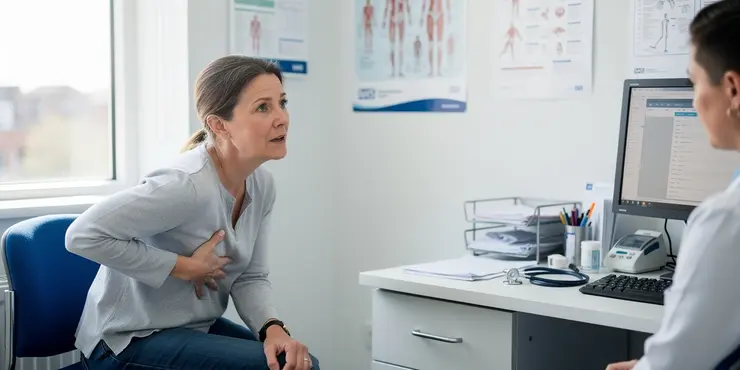
Do I need a Hip Replacement?
Relevance: 80%
-
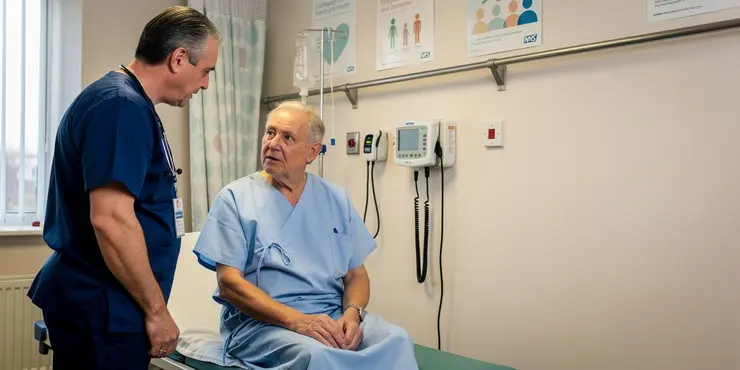
How long does a hip replacement surgery take?
Relevance: 80%
-
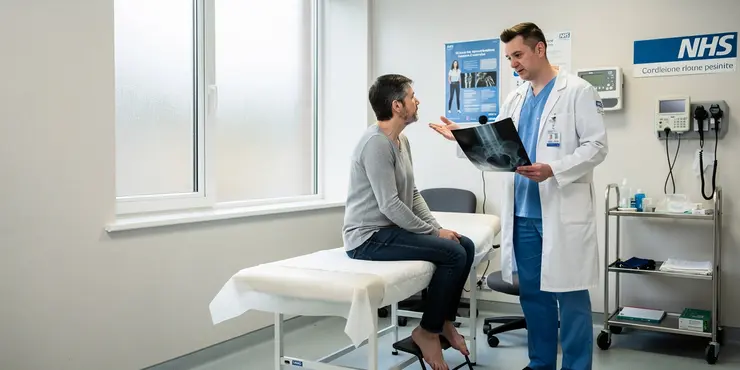
What are the risks associated with hip replacement surgery?
Relevance: 79%
-
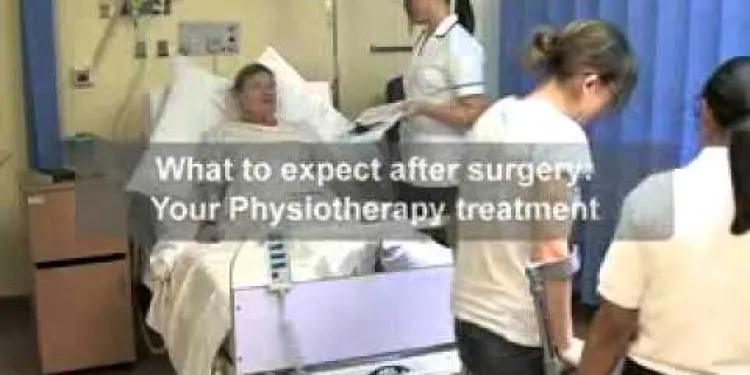
Total hip replacement
Relevance: 79%
-
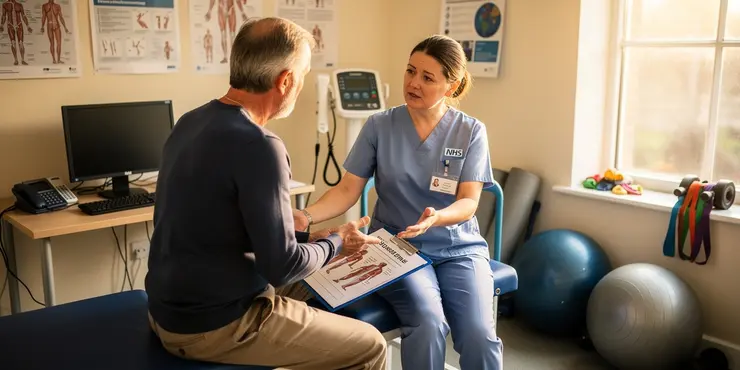
How do I prepare for hip replacement surgery?
Relevance: 79%
-

Total Hip Replacement
Relevance: 77%
-
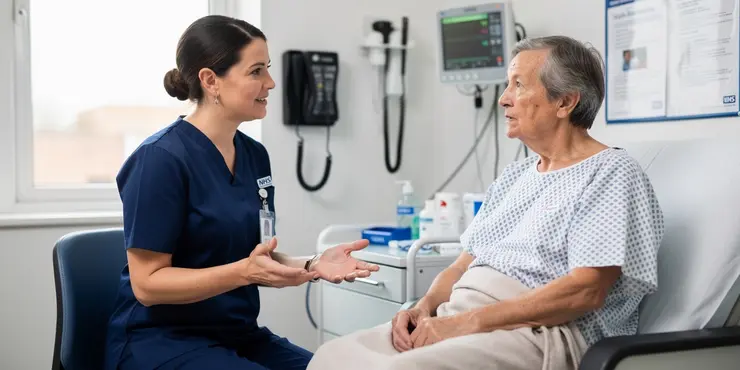
What type of anaesthesia is used during hip replacement surgery?
Relevance: 76%
-
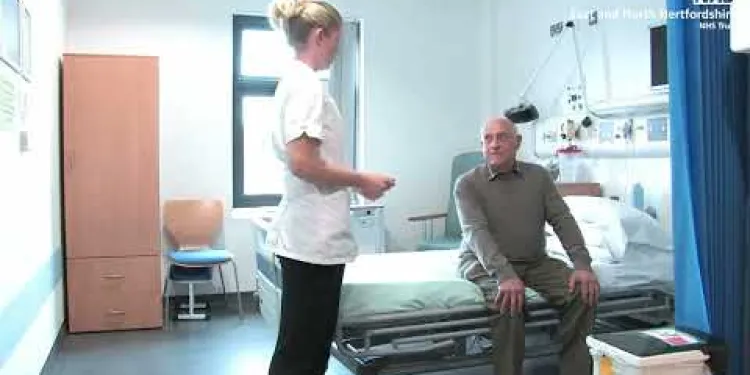
A journey to hip surgery
Relevance: 75%
-
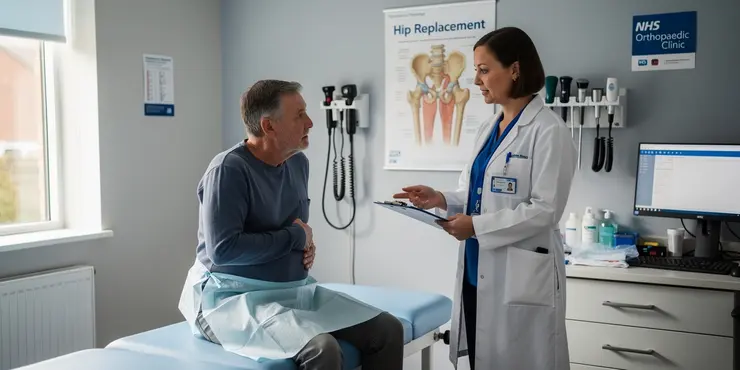
How much does hip replacement surgery cost in the UK?
Relevance: 75%
-

How long does it take to recover from a hip replacement operation?
Relevance: 74%
-
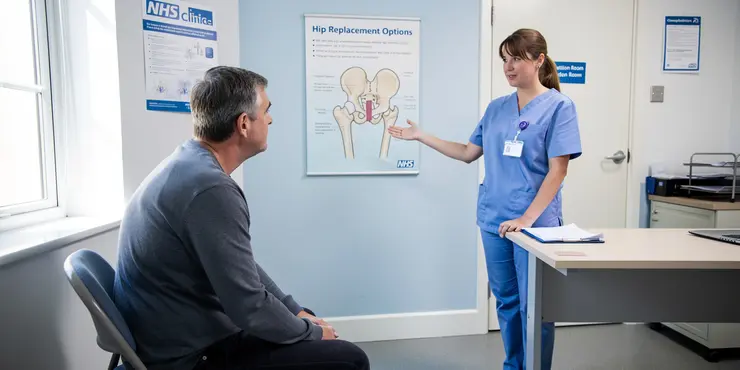
Can both hips be replaced at the same time?
Relevance: 71%
-
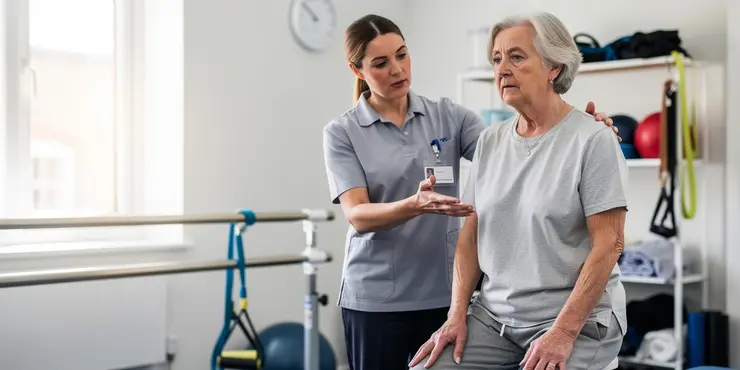
Will I need physical therapy after a hip replacement?
Relevance: 71%
-
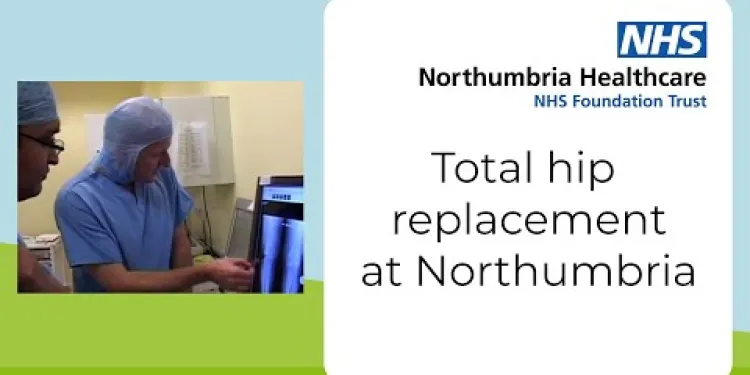
Total hip replacement at Northumbria Healthcare
Relevance: 71%
-
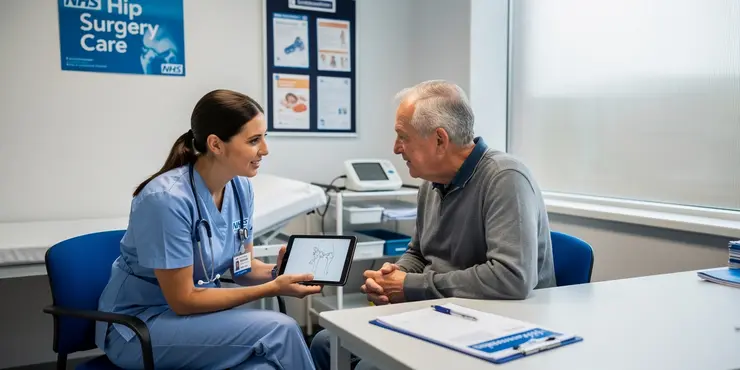
Enhanced Recovery - Hip
Relevance: 68%
-
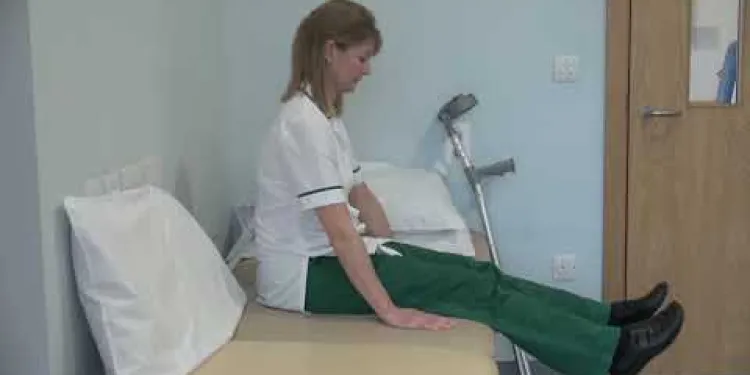
Hip replacement - getting into bed
Relevance: 67%
-

Your anaesthetic choices for your planned hip or knee replacement surgery at the RUH.
Relevance: 65%
-
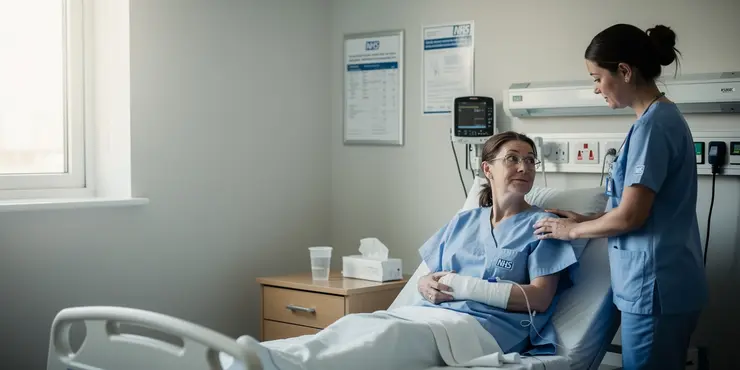
What is the recovery time after Carpal Tunnel Surgery?
Relevance: 54%
-
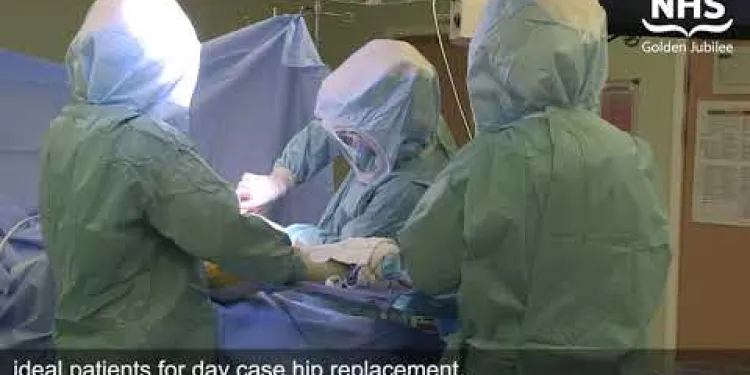
Same day discharge for NHS Golden Jubilee’s hip replacement patients
Relevance: 52%
-
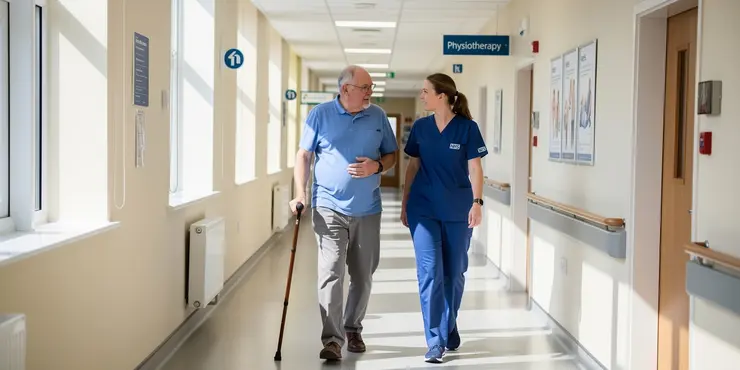
Will I be able to return to normal activities after hip replacement?
Relevance: 50%
-
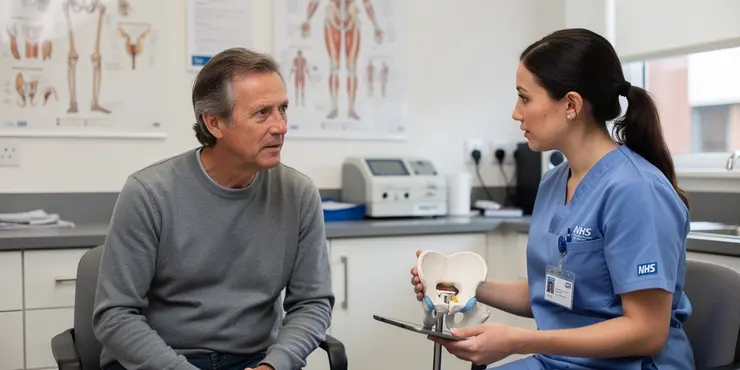
Are there different types of hip implants?
Relevance: 49%
-
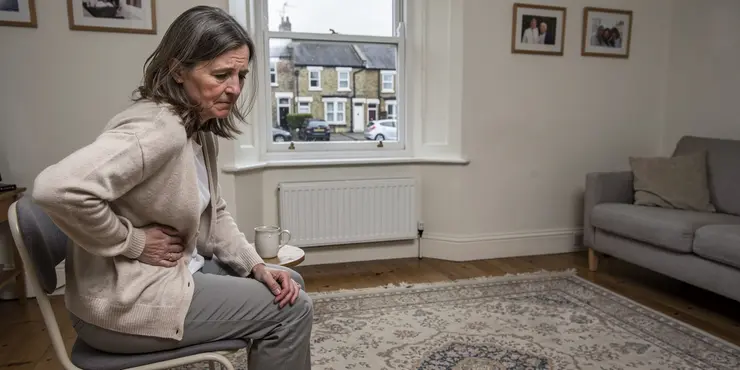
Osteoarthritis of the Hip
Relevance: 49%
-
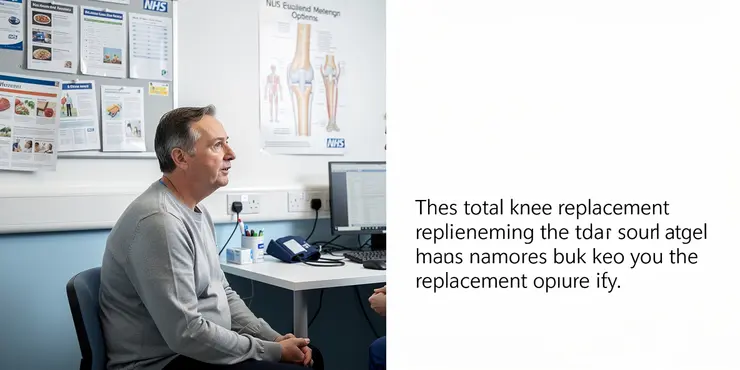
Total Knee Replacement
Relevance: 48%
-
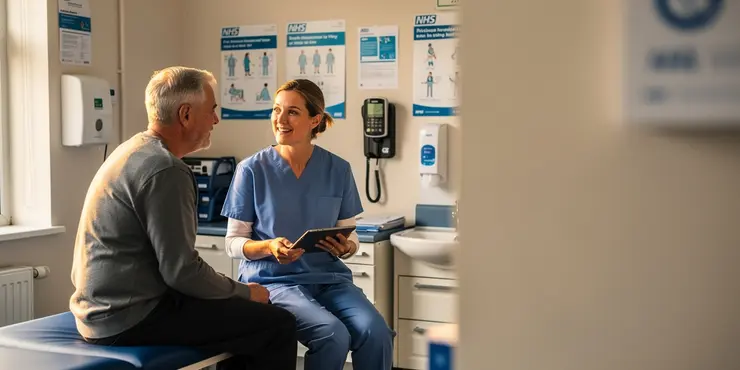
Total knee replacement
Relevance: 47%
-
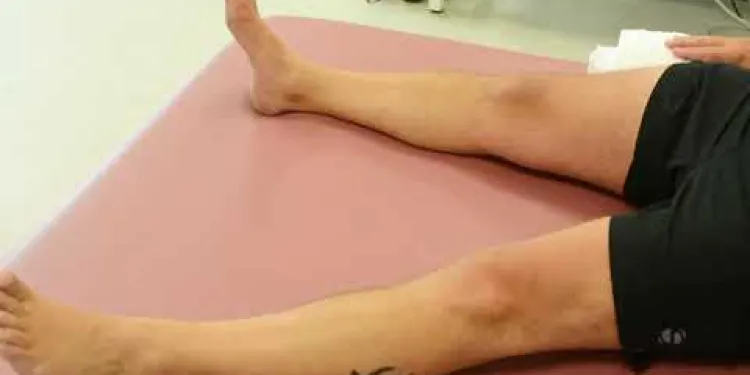
Joint School - Hip Exercises
Relevance: 46%
-
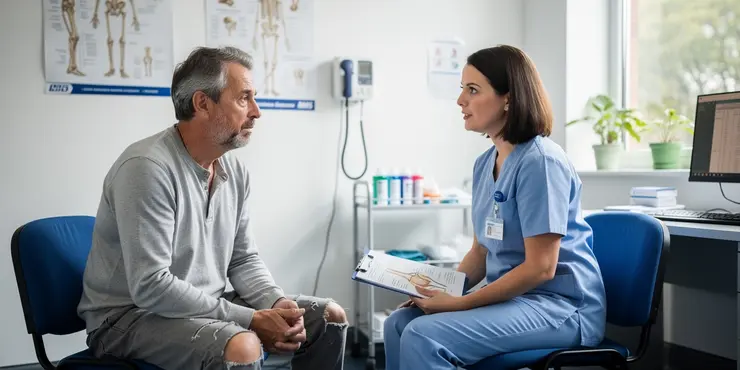
Knee replacement
Relevance: 45%
-
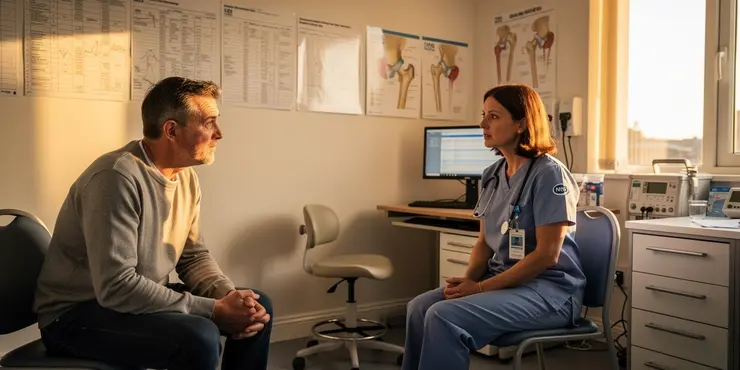
How long before hip replacement implants need replacing?
Relevance: 44%
-
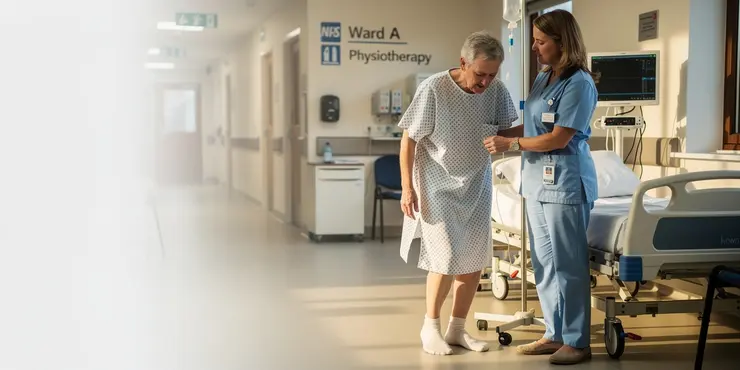
Enhanced Recovery After Surgery in Forth Valley
Relevance: 44%
-

Osteoarthritis of the Hip
Relevance: 43%
-
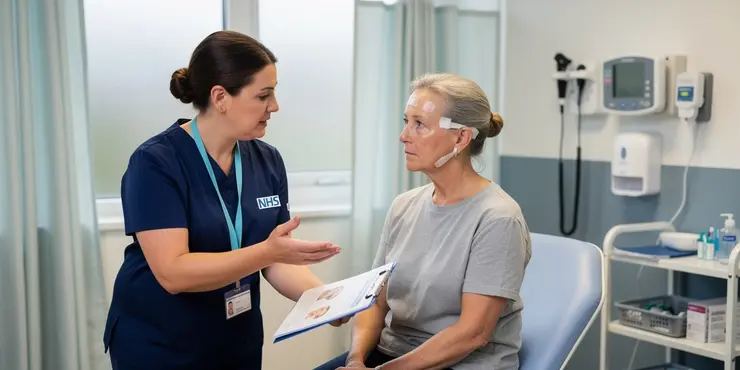
What is the recovery time for a facelift?
Relevance: 42%
-
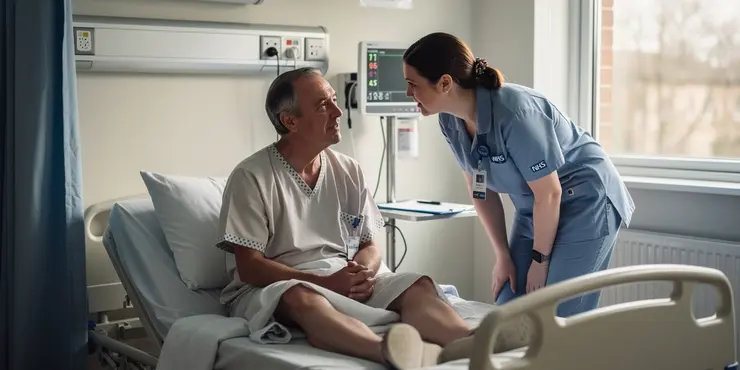
Prostate Surgery
Relevance: 40%
-
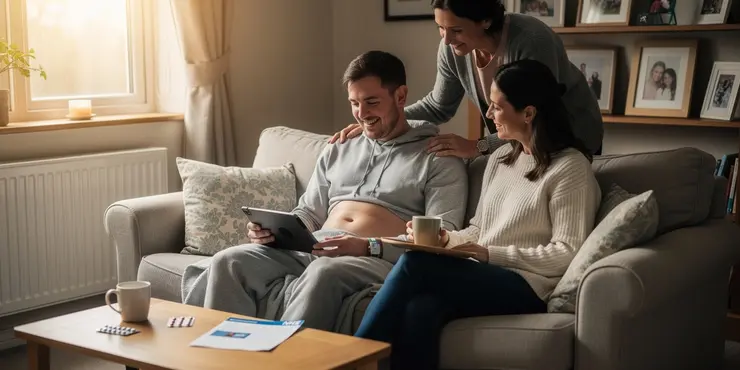
How long is the recovery time after an appendectomy?
Relevance: 40%
-
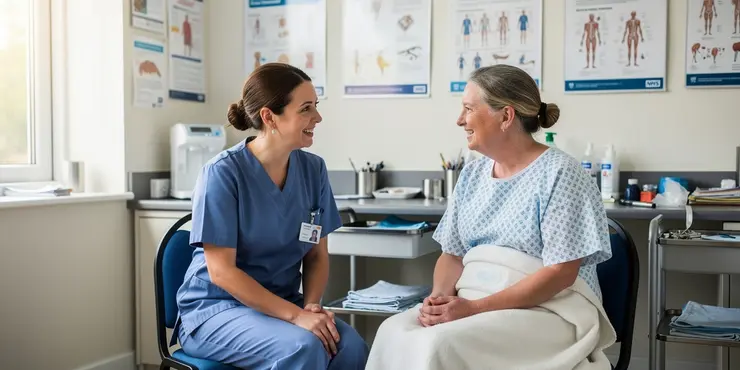
Enhanced Recovery YouTube
Relevance: 35%
-
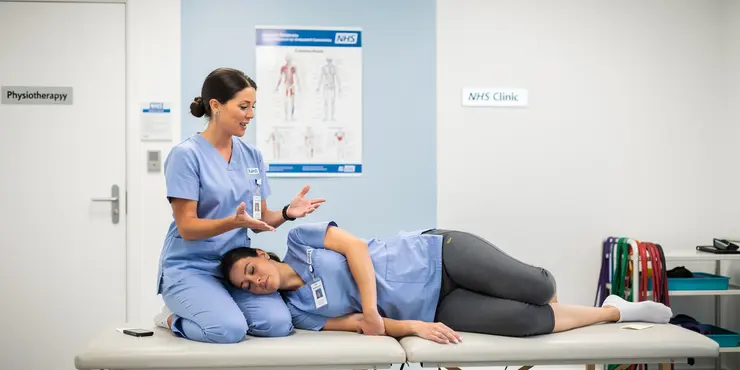
Exercises to help your lateral hip pain
Relevance: 35%
-
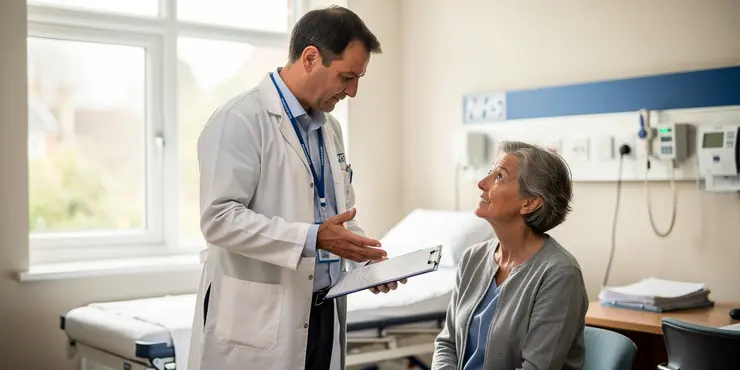
Evidence-Based Interventions: haemorrhoid surgery
Relevance: 34%
Introduction
Undergoing hip replacement surgery is an important step toward improving mobility and reducing pain. As a patient in the UK, it's essential to understand what you can expect during the first few weeks after the procedure to ensure a smooth recovery.
Post-Surgery Hospital Stay
After the surgery, you'll be moved to a recovery room where medical staff will monitor your initial recovery. Typically, patients remain in the hospital for a few days, depending on their overall health and progress. During this time, you'll receive pain medication, and the healthcare team will help manage any discomfort. You will also likely begin physical therapy to start moving your new hip joint safely.
Managing Pain and Swelling
Pain management is crucial during the first few weeks. Your doctor will prescribe medications to control pain and inflammation. Swelling is common, and you may be advised to use ice packs to reduce it. Keeping your leg elevated while resting can also help manage swelling. It's important to follow your doctor's advice on medication and rest.
Beginning Physical Therapy
Physical therapy is a vital component of your recovery process. A physiotherapist will guide you through exercises designed to strengthen the muscles around your new hip joint and improve flexibility. Initially, these exercises will be simple but essential for promoting healing. Regular attendance and dedication to your physiotherapy sessions will significantly impact your recovery speed and outcome.
Adjusting to Home Life
Once discharged, you'll continue your recovery at home. Mobility aids like crutches or a walker may be necessary initially to support your movement. It's crucial to arrange your living space to accommodate your temporary limitations, such as using a raised toilet seat and installing handrails in areas like the bathroom. Avoid activities that involve twisting or flexing your hip excessively in the first few weeks.
Monitoring for Complications
While complications are rare, it's important to monitor for signs of infection or blood clots. Symptoms such as excessive redness, swelling, or fever should be reported to your healthcare provider promptly. Your doctor may prescribe blood thinners to reduce the risk of clotting. Routine follow-up appointments will help ensure that your hip is healing as expected.
Progressing Towards Normal Activities
As the weeks pass, you'll notice gradual improvements in mobility and a reduction in pain. Adhering to your exercise regimen and attending scheduled physiotherapy sessions will support this progress. Most patients can resume light activities after a few weeks, although returning to more strenuous tasks will require additional time and guidance from your healthcare team. Always consult your doctor before making significant changes to your activity level.
Conclusion
The first few weeks following hip replacement surgery are critical to your recovery. By understanding what to expect and adhering to medical advice, you can significantly improve your chances of a successful outcome. Immediate follow-up care, diligent physical therapy, and vigilance for complications will help you regain your independence and enhance your quality of life.
Introduction
Having hip replacement surgery can help you move better and feel less pain. If you are having this surgery in the UK, it is important to know what will happen in the first few weeks after. This will help you get better more smoothly.
Post-Surgery Hospital Stay
After the surgery, you will go to a room where nurses and doctors will watch you to make sure you are okay. You will stay in the hospital for a few days. How long depends on how fast you are getting better. You will get medicine to help with pain. The doctors and nurses will also help if you feel uncomfortable. You will start to do some exercises to help move your new hip safely.
Managing Pain and Swelling
It's important to manage pain in the first weeks. Your doctor will give you medicine to help with pain and swelling. Swelling is normal. Ice packs on your hip can help with swelling. Keeping your leg up when resting can also help. Make sure to follow what your doctor tells you about taking your medicine and resting.
Beginning Physical Therapy
Physical therapy is very important to help your new hip heal. A physiotherapist will help you with exercises to make your hip stronger and more flexible. The exercises will start easy. Doing these exercises is very important to help you get better faster. Make sure to go to your physiotherapy sessions and do the exercises they teach you.
Adjusting to Home Life
When you leave the hospital, you will continue getting better at home. You might use crutches or a walker to help you move. It's important to make your home safe and easy to move around. You might use a raised toilet seat or handrails in the bathroom. Don't do things that bend or twist your hip too much in the first few weeks.
Monitoring for Complications
Problems after surgery are not common, but you should watch out for signs of infection or blood clots. If you see too much redness, swelling, or if you have a fever, tell your doctor right away. Your doctor might give you medicine to stop clots. Regular check-ups will help make sure your hip is healing well.
Progressing Towards Normal Activities
As time goes on, you will move better and have less pain. Keep doing your exercises and go to your physiotherapy sessions. This will help you get better. You can start light activities after a few weeks. Ask your doctor before you do more difficult tasks. They will guide you on when it’s safe to do more.
Conclusion
The first weeks after your hip surgery are very important. Knowing what to expect and following your doctor’s advice will help you get better. Careful follow-up care, doing your physical therapy, and watching out for problems will help you become more independent and improve your life.
Frequently Asked Questions
Useful Links
This website offers general information and is not a substitute for professional advice.
Always seek guidance from qualified professionals.
If you have any medical concerns or need urgent help, contact a healthcare professional or emergency services immediately.
Some of this content was generated with AI assistance. We’ve done our best to keep it accurate, helpful, and human-friendly.
- Ergsy carfully checks the information in the videos we provide here.
- Videos shown by Youtube after a video has completed, have NOT been reviewed by ERGSY.
- To view, click the arrow in centre of video.
- Most of the videos you find here will have subtitles and/or closed captions available.
- You may need to turn these on, and choose your preferred language.
- Go to the video you'd like to watch.
- If closed captions (CC) are available, settings will be visible on the bottom right of the video player.
- To turn on Captions, click settings .
- To turn off Captions, click settings again.
More Items From Ergsy search
-

What is the recovery time for a hip replacement?
Relevance: 100%
-

Hip replacement
Relevance: 95%
-

What can I expect during the first few weeks after hip replacement surgery?
Relevance: 93%
-

What is minimally invasive hip replacement surgery?
Relevance: 85%
-

Having a hip replacement - Part Two: Recovery
Relevance: 84%
-

What is a hip replacement?
Relevance: 83%
-

Do I need a Hip Replacement?
Relevance: 80%
-

How long does a hip replacement surgery take?
Relevance: 80%
-

What are the risks associated with hip replacement surgery?
Relevance: 79%
-

Total hip replacement
Relevance: 79%
-

How do I prepare for hip replacement surgery?
Relevance: 79%
-

Total Hip Replacement
Relevance: 77%
-

What type of anaesthesia is used during hip replacement surgery?
Relevance: 76%
-

A journey to hip surgery
Relevance: 75%
-

How much does hip replacement surgery cost in the UK?
Relevance: 75%
-

How long does it take to recover from a hip replacement operation?
Relevance: 74%
-

Can both hips be replaced at the same time?
Relevance: 71%
-

Will I need physical therapy after a hip replacement?
Relevance: 71%
-

Total hip replacement at Northumbria Healthcare
Relevance: 71%
-

Enhanced Recovery - Hip
Relevance: 68%
-

Hip replacement - getting into bed
Relevance: 67%
-

Your anaesthetic choices for your planned hip or knee replacement surgery at the RUH.
Relevance: 65%
-

What is the recovery time after Carpal Tunnel Surgery?
Relevance: 54%
-

Same day discharge for NHS Golden Jubilee’s hip replacement patients
Relevance: 52%
-

Will I be able to return to normal activities after hip replacement?
Relevance: 50%
-

Are there different types of hip implants?
Relevance: 49%
-

Osteoarthritis of the Hip
Relevance: 49%
-

Total Knee Replacement
Relevance: 48%
-

Total knee replacement
Relevance: 47%
-

Joint School - Hip Exercises
Relevance: 46%
-

Knee replacement
Relevance: 45%
-

How long before hip replacement implants need replacing?
Relevance: 44%
-

Enhanced Recovery After Surgery in Forth Valley
Relevance: 44%
-

Osteoarthritis of the Hip
Relevance: 43%
-

What is the recovery time for a facelift?
Relevance: 42%
-

Prostate Surgery
Relevance: 40%
-

How long is the recovery time after an appendectomy?
Relevance: 40%
-

Enhanced Recovery YouTube
Relevance: 35%
-

Exercises to help your lateral hip pain
Relevance: 35%
-

Evidence-Based Interventions: haemorrhoid surgery
Relevance: 34%


